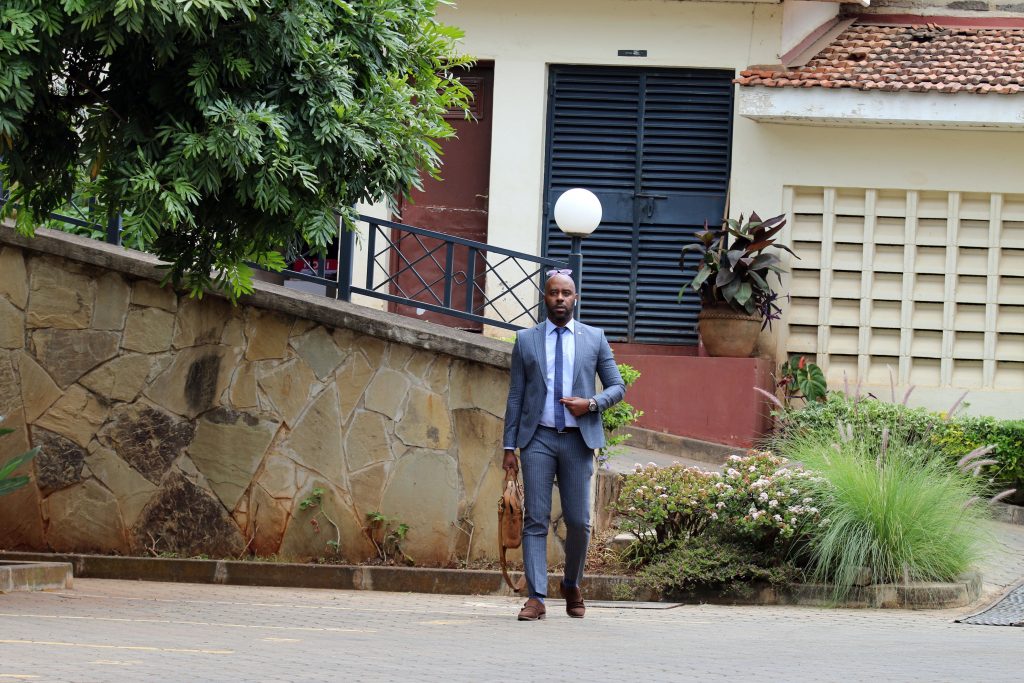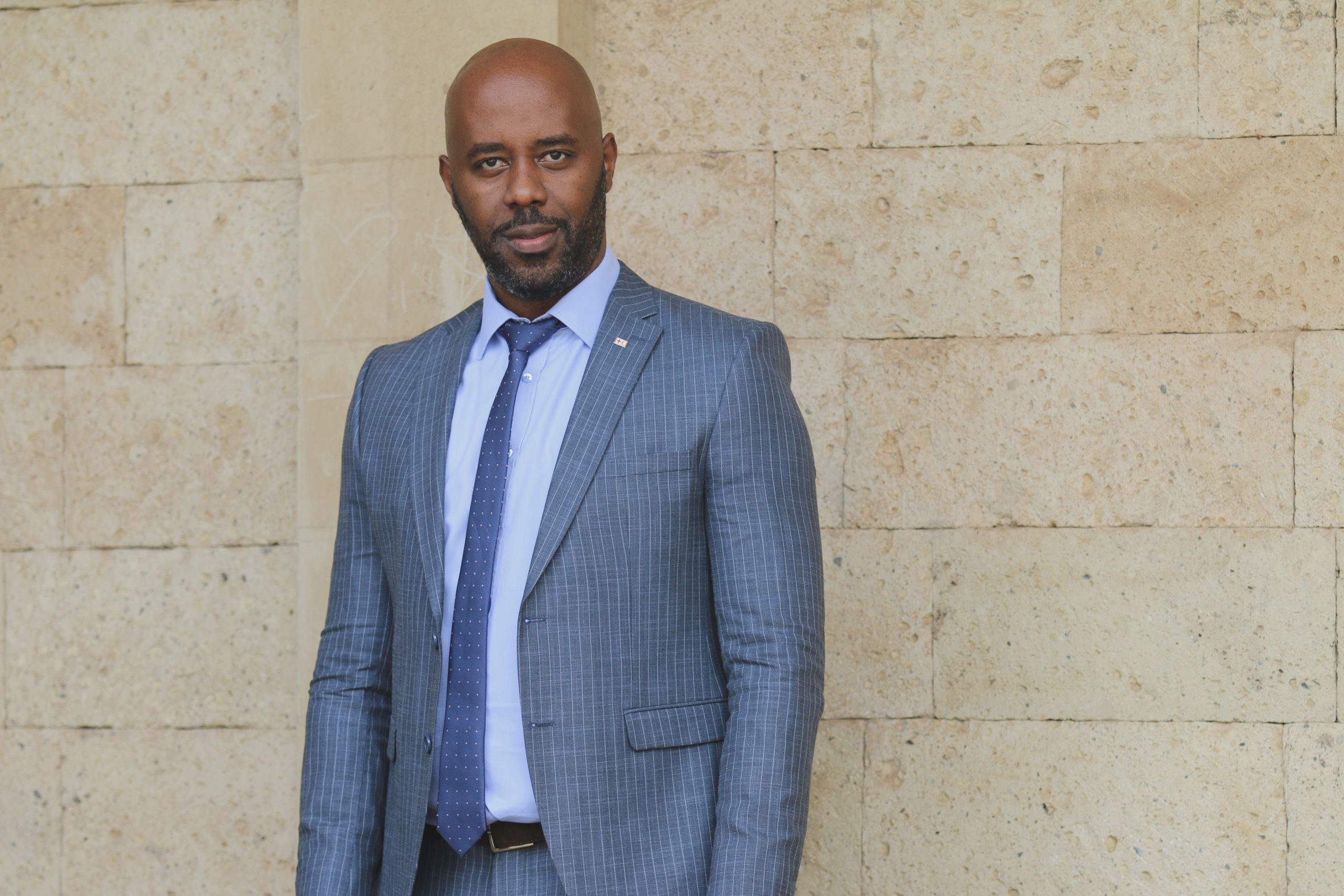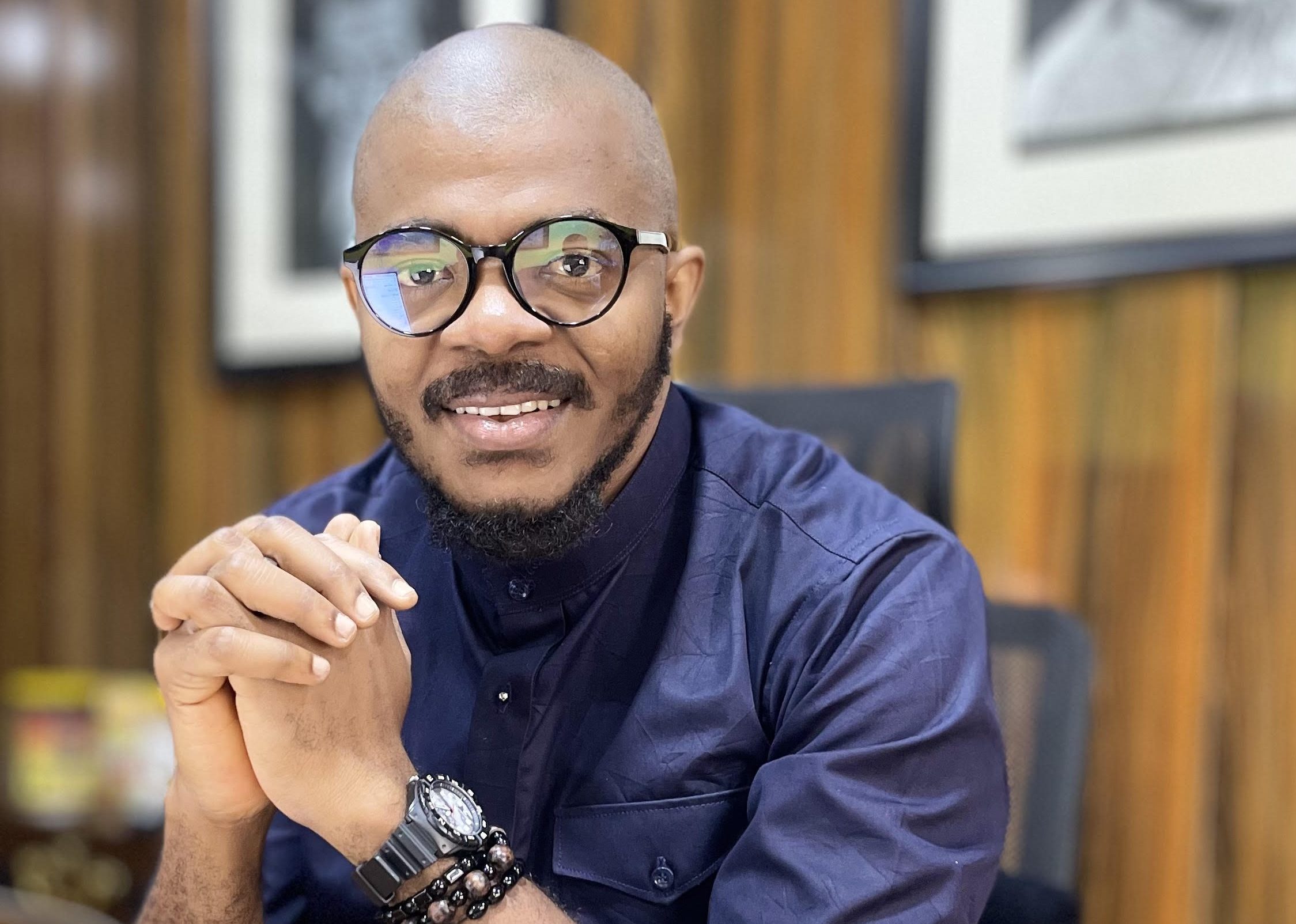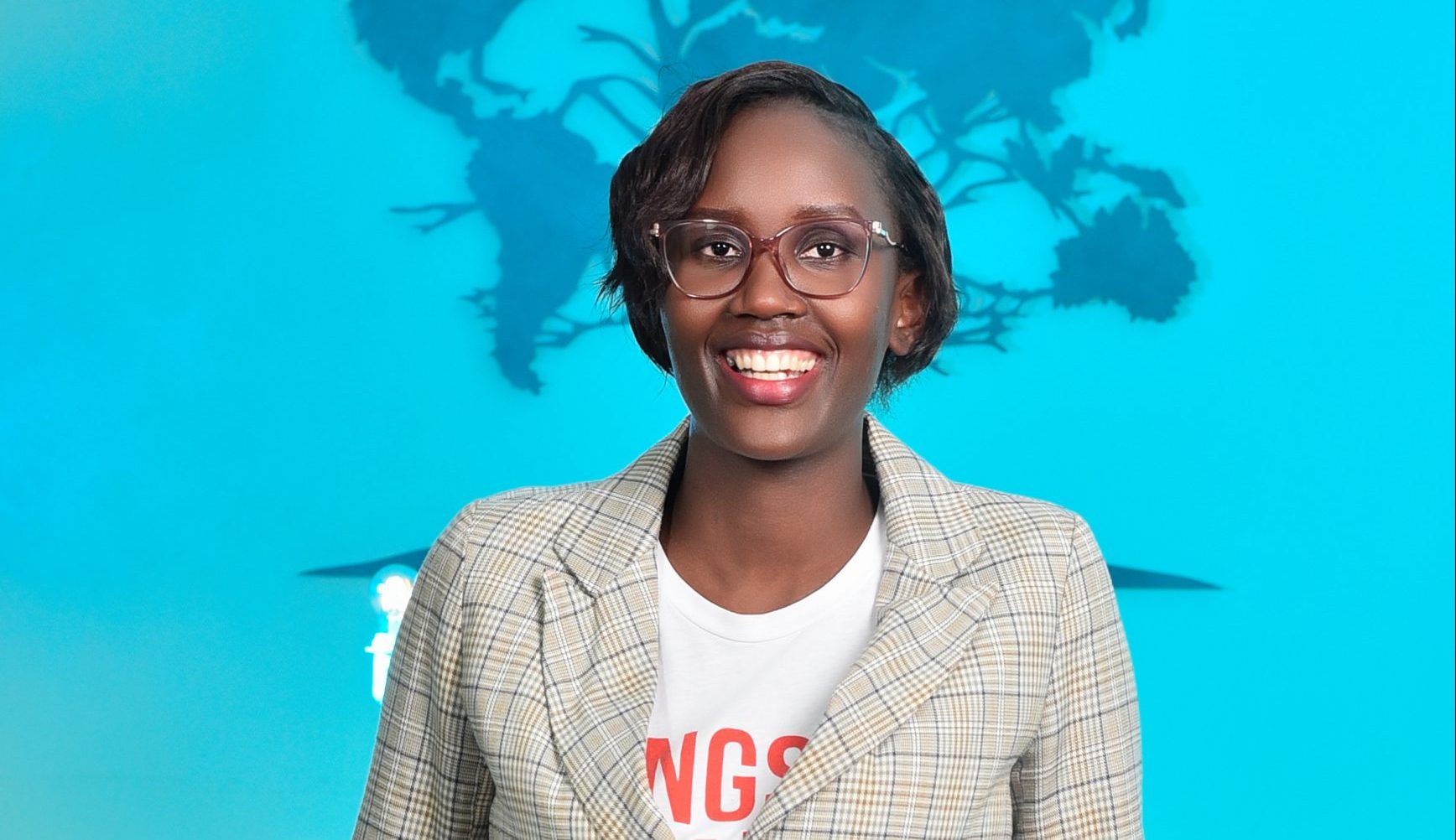Trust us when we say that our interview with Euloge is loaded! You’ll need a note pad and pen to take down great nuggets for your career and professional growth as you read.
Euloge Ishimwe is the Head of Communications for the Africa Region, at International Federation of Red Cross and Red Crescent Societies (IFRC). He describes himself as a multilingual communicator and strategist. Prior to his current job, he served as a Senior Global Editor and Communications advisor at SOS Kinderdorf (Children’s Villages) International. He has also worked in the television industry as a producer and as a station manager. In addition, he has taught audio-visual production in Kenya and journalism in Eswatini. Euloge’s academic background is in languages, journalism, sociology and international relations. For over 19 years, he has helped international organizations to gain visibility, credibility, trust and funding by positioning their brands and leadership successfully using digital strategies, media engagement, diplomacy and advocacy.
Do enjoy his interview with us.
What does your role as the Head of Communications, Africa Region at
International Federation of Red Cross and Red Crescent Societies (IFRC) entail?
I’m responsible for the implementation of IFRC’s communications strategy in Africa. My main role is to contribute to the positioning of IFRC as a key humanitarian leader in Africa. My team and I do this partly by ensuring that IFRC—and the Red Cross Red Crescent Movement as a whole—gets as much positive media and social media coverage as needed. The goal is to bolster institutional credibility and attract more support and goodwill from our stakeholders. My specific tasks include overseeing online communications (web and social media); media relations; editorial quality control; editorial content management; brand compliance; crisis communication and reputation management; emergency/disaster communications; capacity strengthening—as well as ensuring we have a strong network of communications professionals across Africa, where we work in 49 countries. I also manage at team of specialists based in various parts of Africa.
How did you begin your journey in communications and how have you improved yourself over the years?
Since childhood, I knew I had passion for journalism, communication and languages. At school, I excelled in languages, including French, English and Swahili. I did my primary and part of my secondary school in my native Rwanda. I continued my studies in Kenya. After secondary school, I enrolled in a journalism school in 2000, in Kenya, where I studied videography, radio production, publishing and writing for media.
Upon graduation in 2002, I got my first job, in Nairobi, as a Communications Assistant, coordinating an educational radio project, targeting young people in 38 African countries. At the same time, I started a university degree course in communications (with sociology), which I completed in 2005. When I graduated from University in 2005, in Nairobi, I decided to embark on an adventure: In July of the same year, I travelled by bus from Nairobi to Eswatini (then Swaziland), to explore career opportunities in the country. I was fascinated by the Kingdom of Eswatini and I wanted to work and live there for a while. My plan B was to go to South Africa, in the event I didn’t succeed. Luckily, within a month, I got a job in a private television station. At 27, I became the manager of a TV station in Eswatini.
In Eswatini, I worked on television and taught journalism in a college until 2007, when I was offered a job in Kenya, as a communications manager for Africa, with a non-profit organization. While in Kenya, I combined my communications job with a master’s degree course in International Relations.
Since 2007, I have worked for three NGOs/INGOs, as the head of communications in various geographical remits: Africa, Middle East and globally. I have been in my current job with IFRC for almost five years now.

So, back to the question about how I improved myself over the years.
My growth in communications has been because of specialisation and focus. I spent at least 6 years studying communications and journalism and I have been working in communications for 19 years now. I have logged over 35,000 successful hours of work in my line of profession. Although Malcom Gladwell’s 10,000-hour theory (the idea that accumulated practice leads to prowess) has been criticized by some, I’m one of those who believe there is a lot of truth in it. I believe in the importance of specialization, at least at some stage in our career paths. We need experts in any field, and I believe that, to become an expert, you need many hours of practice. Of course, the length of practice varies depending on genetic factors, environmental factors and exposure.
As I mentioned, I started my career as a communications assistant—responsible for the coordination of a radio project. At the same time, I was also responsible for writing for the organization’s magazine and French/English translation. I later moved on to TV production and taught journalism. I finally settled in strategic communications, in the humanitarian sector—where I apply all my previous technical skills (journalism, writing, audio-visual production, etc.). Over the years, I have honed my skills in terms of crafting and implementing communications and campaign strategies, as well as managing teams of specialists. When I’m not handling coordination, planning, budgeting, recruitments, and strategies—I enjoy media relations; hosting panel discussions—and writing op-eds.
While I consider myself an all-rounder within the communications discipline, writing is much closer to my heart. Perhaps I inherited these genes from my late dad who was an author. I enjoy writing and I intend to do it for many more years. One of the pieces of advice I was given is that to be a good writer, you need to be a good reader. Luckily, I have always been an avid reader. I have also written a lot. In fact, in 2012, I published my first book. Improving one’s writing skills requires years of practice, mentorship, and humility. I say humility because you also need to be willing to accept constructive criticism.
You need to be willing to learn continuously, no matter how good you think you are. I remember one of the first press releases I wrote: the senior colleague who reviewed it ripped through it like a Tsunami, with his edits! The sight of the document in track change mode was dispiriting. Situations like these teach you that you need to separate your ego from your work—if you are to improve yourself. You also learn through rejected media pitches. In the early days of my career, whenever a newspaper editor rejected an op-ed pitch, I would note and document their feedback. Over the years, I learned and became comfortable and successful in writing and pitching op-eds.
Can you share one major challenge you have faced in your career so far and how you overcame it?
After my adventurous bus ride from Nairobi to Eswatini in July 2005, at 27, and fresh from university—with limited management skills—I was appointed as a manager of a TV station, in a foreign country. Half of the employees were older than me and I didn’t speak the local language—Siswati. While we ultimately achieved a lot as a team, at the beginning I sensed that the fact that a young foreigner was “imposed” as a boss didn’t sit well with a section of the staff members, especially those who were older than me and had worked for the station for many years, and thought they too deserved to be managers.
To overcome the social and cultural integration challenge, I decided to learn the language as fast as I could. Within six months, I could speak basic Siswati. This endeared to many in my team. In fact, one of the colleagues, a gracious transmission controller, decided to give me a local name: “Jabulani”—a Zulu/Swazi name meaning “rejoice”.
What are some of the key lessons you have learnt from your professional journey so far?
From my experience as a TV manager—to my current job as the regional head of communications, I have learned that to be trusted and enhance your personal brand— it’s fundamental to strive for excellence, reliability, and quality. You have to ensure that your work speaks for itself, while ensuring you build good relationships with colleagues.
In terms of the career path, it is important to strike the right balance between being a specialist and a generalist. Yes, you can always “pivot” into another career at some point, but at the end of the day, you have to establish a distinct career brand. A successful brand is one that has a clear niche. You can’t be jack of all trades for your entire career, you need to have a trade to fall back on. Being a generalist has its values, but to me, good generalists are those that were specialists at some point – or they intend to become specialists later.
If I can theorize on an ideal career path, I would say it has at least three phases: (1) exploration: to identify your interests and strengths, for a period of one to two years. That’s why it’s always advisable to take a gap-year after high school; (2), specialization: spend about 10,000 hours (about 5 years work years) mastering a few distinct skills; and (3) pivot: changing your direction, after one or two decades of specialization, or growing further in the same direction.
This is where I am currently. I can say I have reached expert level in communications. As I clock 20 years in communications soon, my ambition is to pivot again into the “C-suite”. This is my unique case, not everyone needs to take 20 years before pivoting. Every career path is unique. Mark Zuckerberg started Facebook at 19, and became a millionaire at 22—but Colonel Sanders started KFC at 65!
What book or podcast has had a huge impact in your professional journey?
I’m an avid reader and many books have had an impact on my professional journey. So, it’s hard for me to choose one book only. Allow me to give you the list of a few books which have had an impact on my career:
– Myths of PR: All Publicity is Good Publicity and Other Popular Misconceptions (Rich Leigh)
– Your Press Release Is Breaking My Heart (Janet Murray)
– Dark Art: The Changing Face of Public Relations (Tim Burt)
– Reporting Disasters: Famine, Aid, Politics and the Media (Suzanne Franks)
– Trust Me, PR Is Dead (Robert Phillips)
– The Murdoch Method: Notes on Running a Media Empire (Irwin Stelzer)
– HBR Guide to Getting the Right Work Done (HBR Guide Series)
– The 80/20 Principle: The Secret to Achieving More with Less (Richard Koech)
– How to Think Like a CEO (D.A. Benton)
– The 48 Laws of Power (Robert Greene)
In terms of podcasts, I listen a lot to Robin Sharma’s mastery sessions.
The best piece of advice you’ve ever received from a mentor in the industry?
Trust your instincts, be bold, go big.





